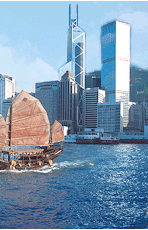Nah, it was the Russians:
http://www.weatherwars.info/katrina.htm
The graphs do not seem right. The 2001-2004 interval should not be compared with the other 10-year intervals.
CIP - the text under that graph acknowledges that this is not a complete decade. Feel free to remove the 2001-2004 data point. The point remains the same.
Shaky - I stand corrected.
Dear No 1.5 son.
Global warming is about change. When considering the hurricanes you need to look at both quantity and quality. What the doomsayers are doomsaying is that overall the hurricanes will have a greater impact. Secondly, a drop in the number of hurricanes in the US is good but a drop in India is bad.
So, concentrate on the effects of change rather than the raw data.
Good to see you have time to blog again.
Da,
I'll send you Beckerman's book.
The data linked above traces both frequency and severity. Hurricanes will have more impact ceteris paribas as we go forward, because more people choose to live on the coast, people are getting richer with nicer houses and possessions to get blown away. That's the fault of economic growth. Should we ban that?
If the effects of global warming mean the feared mini ice age that was all the rage in the 1970s can be avoided, then I'm for it. If it means there will be more arable land in the world, I'm for it. The climate is always changing, getting hotter or colder, more disasters and less. The correlations are almost impossible to predict given the massive number of variables involved.
Beckerman says that if we get on with the business of economic growth and democracy, the environment will get taken care of in due course. As people get richer they can afford to choose "green" options, and they can afford to make sacrifices in their living standards for the sake of the environment. The poor don't have that choice. Beckerman is saying that green groups seem to choose the environment over saving fellow humans. A matter of priorities, I suppose.
And if climate change means the Swans can win the Grand Final, then I'm strongly in favour!









